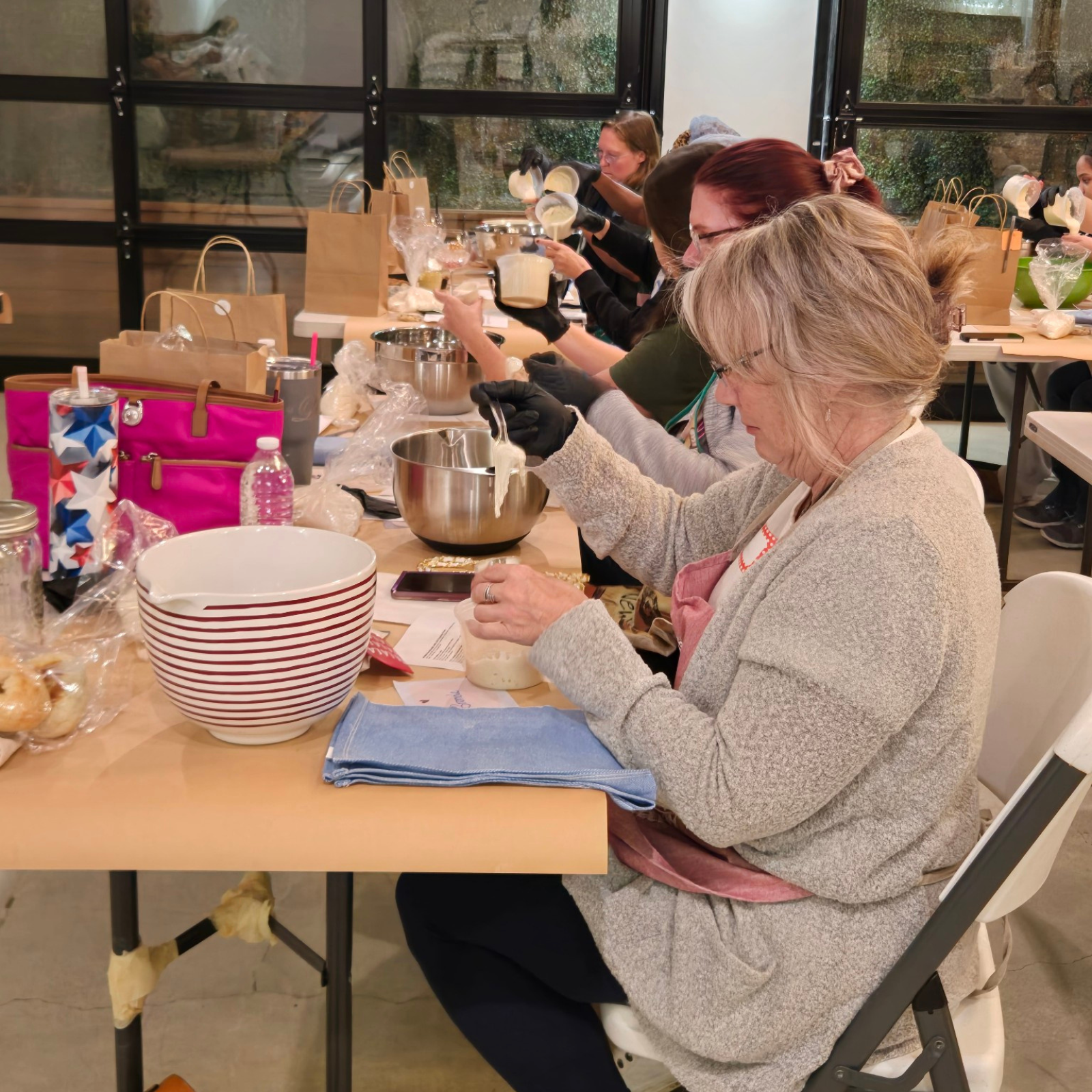Tips for Hosting a Successful Sourdough Workshop

Hosting Your Own Sourdough Workshop: Tips for Success
Are you passionate about sourdough and ready to share your skills with others? Hosting a sourdough workshop can be an incredibly rewarding experience, allowing you to inspire others, create a sense of community, and even generate income from your expertise. Whether you’re a seasoned sourdough mentor or a hobbyist with a love for teaching, this guide will walk you through the key steps to host a successful sourdough workshop.
Why Host a Sourdough Workshop?
Sourdough workshops are more than just baking lessons—they’re opportunities to connect with like-minded individuals, share the joy of crafting wholesome bread, and foster a greater appreciation for natural fermentation. Workshops can also:
- Build your reputation as a sourdough expert.
- Create an additional revenue stream.
- Strengthen local community connections.
- Help attendees develop confidence in their baking skills.
Step 1: Plan the Workshop
Define Your Audience
Are you targeting beginners, experienced bakers, or families? Tailor your content to their needs. For beginners, focus on foundational skills like creating a starter, mixing dough, and shaping loaves. For advanced bakers, you might dive into intricate scoring techniques or specialty loaves.
Set Clear Objectives
What should attendees leave with? A finished loaf? A sourdough starter? Knowledge of basic techniques? Clearly outline your goals to shape the flow of the event.
Choose a Location
Decide whether you’ll host the workshop at your home, a local community center, or a rented kitchen. Make sure the space has:
- Enough counter space for participants.
- Access to ovens (if baking will be part of the workshop).
- Proper sanitation and seating arrangements.
Step 2: Prepare the Essentials
Create a Supply List
Provide participants with the tools and ingredients they’ll need. Include items like:
- Flour (use organic or local options if possible).
- Sourdough starter.
- Mixing bowls and scrapers.
- Bench knives and proofing baskets.
- A tea towel, scale, and razor blade (if scoring is part of the lesson).
You can either provide these supplies as part of the workshop fee or ask participants to bring their own.
Develop a Timeline
Break down your workshop into manageable segments, such as:
- Welcome and Introduction (10 minutes).
- Sourdough Starter Basics (15 minutes).
- Hands-On Dough Mixing (20 minutes).
- Shaping Techniques (20 minutes).
- Baking Tips and Q&A (20 minutes).
Keep time flexible but organized to ensure everyone stays engaged.
Prepare Visual Aids
For visual learners, prepare slides, videos, or handouts that explain key concepts like hydration ratios, fermentation timing, and starter maintenance.
Step 3: Create an Engaging Experience
Make it Hands-On
People learn best by doing. Encourage participants to get their hands in the dough and experience the process for themselves.
Share Your Expertise
Incorporate stories of your sourdough journey, common mistakes, and tips you’ve learned along the way. Personal anecdotes make the workshop relatable and memorable.
Incorporate Prizes or Giveaways
Consider offering small prizes like a set of bench scrapers, tea towels, or a sourdough-themed recipe book. It’s a fun way to keep energy high and participants excited.
Step 4: Promote Your Workshop
Utilize Social Media
Post enticing visuals of sourdough bread and workshop details on platforms like Instagram, Facebook, and TikTok. Use hashtags like #SourdoughWorkshop, #BakingClass, and #LearnToBake to increase visibility.
Leverage Word of Mouth
Encourage past attendees or friends to share your workshop details with their networks.
Create an Email List
Send an email blast with details about the workshop, including the date, time, cost, and what’s included.
Step 5: Follow Up After the Workshop
- Provide Resources: Send participants recipes, tips, and a list of recommended tools to continue their sourdough journey.
- Encourage Feedback: Use a quick survey to gather insights on what worked well and what could be improved.
- Stay Connected: Invite attendees to join your social media pages or email list for updates on future workshops.
Closing Thoughts
Hosting a sourdough workshop is a wonderful way to share your passion for baking while empowering others to create something truly special. With careful planning, a welcoming environment, and a focus on hands-on learning, your workshop can leave a lasting impression on participants and inspire a new wave of sourdough enthusiasts.
Ready to host your own sourdough workshop? Take the leap, and you might just spark someone’s lifelong love for baking.

Written by Rachael DeBoy
More From This Category

Which LifeWave Patch Supports Your Health Goals?
Explore the best LifeWave patches for your wellness goals. From energy to pain relief to faster recovery, discover which patch is right for you and how to combine them effectively.

Which LifeWave Patch Supports Your Health Goals?
Explore the best LifeWave patches for your wellness goals. From energy to pain relief to faster recovery, discover which patch is right for you and how to combine them effectively.

Which LifeWave Patch Supports Your Health Goals?
Explore the best LifeWave patches for your wellness goals. From energy to pain relief to faster recovery, discover which patch is right for you and how to combine them effectively.

0 Comments